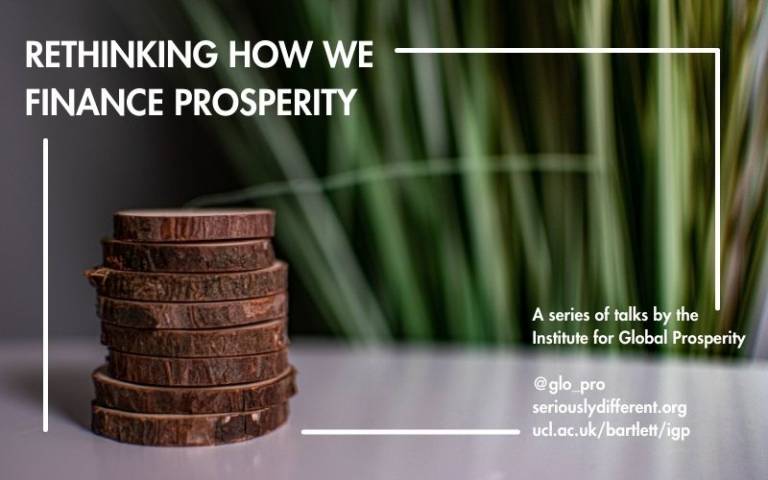The digital refugee economy: an opportunity to leapfrog towards prosperity?
14 October 2021, 4:00 pm–6:00 pm

The IGP welcomes Andreas Hackl (University of Edinburgh) for a Director's Seminar
This event is free.
Event Information
Open to
- All
Availability
- Yes
Cost
- Free
Organiser
-
Institute for Global Prosperity
The global spread and growth of the digital economy raises questions about its current and future role for the economic inclusion of refugees. As people who are forcibly displaced from their homes, refugees often find themselves in host countries that restrict their access to the local economy and to formal employment. Digital labour platforms and online remote work opportunities therefore offer a promise that resonates strongly among those living in exile: the promise that anyone can, in theory, work online as a ‘freelancer’ as long as they have a computer, internet access, and are willing to work hard enough.
Based on two years of research among refugees taking part in digital skills training, online work, or e-commerce, this lecture will explore both the opportunities and limitations of the digital economy to become a source of economic relief and employment at the world’s economic and digital margins. All the while refugees are being included in precarious forms of labour and self-employment through digital labour platforms, countries in the global South invest high hopes in the transformative power of digitalizing the economy: the believe that digitalization offers boundless opportunities for youth employment and economic development; that it offers an opportunity to leapfrog towards prosperity. The unique perspective of forcibly displaced persons challenges this idea, revealing the many layers of exclusion and inequality that define the marginal position of refugees in the digital economy as one of digital exile.
The Speaker:
Dr Andreas Hackl is Lecturer in Anthropology of Development at the School of Social and Political Science, University of Edinburgh.
His most recent research explored the growing relevance of digital livelihoods and online work among refugees and migrants in Lebanon, Germany, and globally. Building on this two-year project, Andreas conducted further research for the ILO’s Youth Employment Accelerator under the multi-stakeholder PROSPECTS partnership, to explore the role of digital economies for job creation among refugees and host communities in Egypt, Kenya, and Uganda. Recent publications include the ILO report Digital Refugee Livelihoods and Decent Work, as well as an article in the Journal of Ethnic and Migration Studies titled Writing code, decoding culture: digital skills and the promise of a fast lane to decent work among refugees and migrants in Berlin.
Previously, the focus of his research was on dynamics of labour mobility and urban inclusion among Palestinians in Israel. Major outputs form this work include an article in American Ethnologist titled Immersive Invisibility in the settler colonial city: The conditional inclusion of Palestinians in Tel Aviv, and a forthcoming monograph with Indiana University Press (The Invisible Palestinians: The Hidden Struggle for Inclusion in Jewish Tel Aviv). Alongside his work as an anthropologist, Andreas has worked as a newspaper correspondent based in Jerusalem and as a humanitarian reporter and analyst for The New Humanitarian.
 Close
Close

